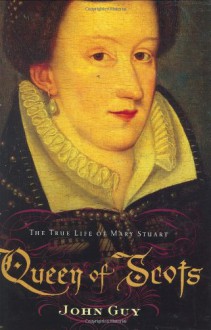
This book was full. Full of detail. Full of characters. Full of buildings. Full of emotions. Full of bad choices. Full of stupid girls.
I'm going to veer off course here just a little bit. Every book I have ever read about the French royal court is full of stupid, stupid women. The only exception seems to be Catherine de Medici. And she's not French. She's Italian. I'm going to go back and check out my reviews of past books. I'm pretty confident in this statement. Women at the French court, no matter the era, were stupid and constantly made head banging choices. A prime example is the Mistresses of Versailles trilogy by Sally Christie. I encourage you to check out my reviews. It's some of my best work. I welcome any book suggestions that will counter my personal theory.
Back to this book.I enjoyed the first 30%. Marguerite was an intelligent, hard working woman. She had skills other than bedroom skills and she put them to work. She was not going to take a handout from her rich lover. She understood the importance of being independent. Marguerite had very modern sensibilities. That didn't mean Marguerite didn't make some stupid decisions. She did. In her defense, if I had been forced to live with a woman like Suzanne, I might do some pretty stupid things too. The reader walks through life with Marguerite while she navigates life in the court of the Sun King, has her heart broken, and finds love again.
At the astounding age of 42, Marguerite gives birth to her daughter, Jasmin. Here the book starts to fall apart. Jasmin is spoiled. While Marguerite wants to keep her only child firmly grounded, papa indulges her. I think we all know how that goes. Jasmin makes bad choice after bad choice. Eventually those choices land her married to a vile, abusive, banished Duc. Jasmin's husband is your typical violent drunk. The only thing the author forgot to give him was a curling mustache. At some point, Jasmin has a daughter of her own who she calls Violette. More bad choices follow. All the while we are suppose to believe that Jasmin is actually an intelligent, caring, compassionate woman who cares deeply for the plight of the French common people. All of those things are true but they become hard to swallow when surrounded by all of the other obviously moronic things Jasmin does.
We never really get a full Violette story. This is perfectly fine. The little bit of Violette we do get is exasperating. Her choices make her mother's look intelligent. She exists as an avenue to Rose. Rose is Violette's daughter who ends up being raised by Jasmin. Rose enters the book at about 70%. Honestly, if Rose was the only person featured in this book, that would have been enough for me. Rose's story puts the reader in Marie Antoinette's inner circle as the events of the French Revolution unfold around her. It's dramatic. It's emotional. It had me yelling at my husband to find another room to breath in. There is a scene towards the end that follows the execution of Marie Antoinette that had me full on ugly crying. I would read that section of the book again. Not the rest. Just that part.
I need to veer off course here again. In a time when the average life expectancy of a French citizen was between 25 and 30 years of age, the people in Laker's book managed to live incredibly long lives. Many of the main characters reached at least 70s and in some cases 90s. While I understand that Laker's characters were much better off than most French people of the era, it is incredibly unlikely that so many people would live so long. Smallpox ran wild in France and the vaccination wasn't available until the early 19th century. However, I have seem some evidence that suggests Marie Antoinette introduced the smallpox vaccination to the French court. Some could argue that demographic information from the late 18th century is a little skewed due to the sheer amount of executions that took place during the years of the French Revolution. While that's a valid point, the French government didn't keep accurate data during the Revolution years. Specifically any data pertaining to life expectancy of men. I welcome any thoughts on this.
This got a little longer than I intended it to but I had a lot of book to deal with.
Read from 12/23/2019-1/16/2020

 Log in with Facebook
Log in with Facebook 









